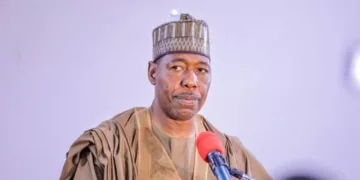The Aircraft Owners and Pilots Association of Nigeria (AOPAN) has raised the alarm that there would be a shortage in technical personnel in the nation’s aviation sector.
Speaking at the annual conference of the League of Airport and Aviation Correspondents (LAAC). the president of the association, Dr Alex Nwugha, said the current limited technical personnel in the Nigerian aviation industry is a challenge waiting to hit the sector in the years to come.
According to Nwuba, despite the current situation, Nigeria was making limited efforts in developing pilots and engineers, Air Traffic Controllers (ATCs) and others.
LEADERSHIP reports that recent data received from the Nigeria Civil Aviation Authority (NCAA) indicated that there are 554 licensed pilots, 913 licensed engineers and 1,700 cabin personnel in the country’s aviation industry.
Nwuba said, “The issue of pilot shortage is a future problem, not a current one, but one that is going to become a major problem in the future as we are making limited efforts in developing new pilots, engineers’ dispatchers and air traffic controllers, even though we can see the challenges ahead.”
Nwuba also mentioned economic, operating, regulatory, security, external and Nigerian factors as some of the impediments to the productive aviation industry in the country.
According to him, the country was currently in a state of hyperinflation and significant currency devaluation, affecting all organisations in the sector, including ground handling companies and airlines.
He insisted that the economy acts as the single largest impediment to the aviation industry, creating instability in travel demand, price and cost inflation.
Nwuba further craved for provision of believable data from the Nigerian authorities.
He decried that data had been a huge problem in the Nigerian aviation industry, affecting operators and even the regulators.
He canvassed for a new and sustainable aviation business policy that drives growth and positions the country for the coming common trade area for goods, services and in particular, a single air traffic market.





